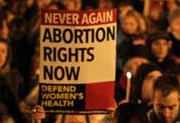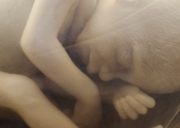The San Jose Articles: saying ‘no’ to abortion as an International Human Right
Almost three-quarters of the world’s countries do not permit abortion for any reason. The Daily Telegraph this week claims that Britain is one of only 56 countries that do. However many of these countries are now finding themselves under increased pressure to liberalise their abortion laws, on the basis that there is an international right to abortion that governments must protect.
Anand Grover, the ‘UN’s Special Rapporteur on the right of everyone to the enjoyment of the highest attainable standard of physical and mental health’ (yes, that is his full and official title) has argued that legal access to abortion is part of the right to health, which gives rise to binding obligations on States [1]. The Secretary General has endorsed this, as has the UN High commissioner for Human Rights [2]. Writing in an official UN Report in July 2011, she claims that “the denial of safe abortion or the penalisation of abortion have also been deemed to, in certain circumstances, constitute a violation of the right to be free from torture and cruel, inhuman and degrading treatment…A human rights-based approach implies that States must take steps to eliminate such barriers to the provision of abortion services.”
As a result, a UN official can tell a government in a developing country that they are treaty-bound to legalise abortion. For poor countries in particular, meeting UN approval is crucial because crossing them can lead to the withdrawal of much-needed funds.
However there are actually no grounds to establish abortion as an international human right, while there is a well established right to life. The pressure on countries to legalise abortion, and write it into their domestic law, is therefore deemed by some as bullying.
Last week saw the start of a more concerted effort to fight back against this pressure, with the launch of the San Jose Articles. These nine Articles aim to show that there is no ‘right to abortion’ to be found in international law that would oblige countries to ‘conform, or else’, in spite of UN and other agencies’ claims to the contrary. They were first launched at the United Nations and then on 10th October in the House of Lords in the UK. Over the following four weeks the document is being launched in the European Parliament in Strasbourg, the Italian Parliament, the World Pro-Life Congress in San José, the Canadian National Pro-Life Conference in Calgary, as well as at venues in Madrid, Santiago, Buenos Aires, and Washington D. C.
The Articles are named after the city of San Jose in Costa Rica, where they were signed. Professor Robert George of Princeton and former US Ambassador Grover Joseph Rees launched them at the UN. Professor George said, “The San José Articles were drafted by a large group of experts in law, medicine, and public policy. The Articles will support and assist those around the world who are coming under pressure from U.N. personnel and others who say falsely onhealthy maxalt that governments are required by international law to repeal domestic laws protecting human beings in the embryonic and fetal stages of development against the violence of abortion.”
The articles begin by stating that: “as a matter of scientific fact a new human life begins at conception”. Directly challenging claims that there is any suggestion of a duty to legalise abortion, Article 7 states that: “Assertions by international agencies or non-governmental actors that abortion is a human right are false and should be rejected. There is no international legal obligation to provide access to abortion based on any ground, including but not limited to health, privacy or sexual autonomy, or non-discrimination
In contrast, Article 8 states that: “…states may and should invoke treaty provisions guaranteeing the right to life as encompassing a state responsibility to protect the unborn child from abortion.”
Along with Ambassador Rees and Professor George, the articles have also been signed by 30 other international experts in law, medicine, and public policy.
In the House of Lords, Lord Nicholas Windsor and Lord Alton of Liverpool launched the nine San Jose Articles in the UK. An impassioned article by Lord Windsor in the Daily Telegraph on the same day claims that our own generation have been deprived the future talents of aborted fetuses. He describes his own personal feelings about abortion: “It hit me in the stomach that terminating a pregnancy equalled none other than the destruction of a human being. It knocked the wind out of me the first time, as it does every single time I think of it… Surely, the womb should be the safest place in the world to be. Not any more.”
These Articles have received little coverage in the UK press, primarily because they are not directed at the minority of countries where abortion is both legal and easily accessible. The Articles are for those countries who have not liberalised their abortion laws but are feeling the pressure to do so from outside.
The hope is that the San Jose Articles will prove to be pivotal in equipping them to just say ‘no’. Those who make the false assertion that there is an international right to abortion have had the microphone too long. The San Jose Articles take that microphone away.
[1] “Sexual and reproductive health rights are integral elements of the right to health. They encompass both freedoms, such as freedom from discrimination or freedom to control one’s health and body, and entitlements, such as a right to a functioning health system. Without doubt, these issues represent a central feature of the right to health and give rise to binding obligation on States.” UN Press Release
[2] Earlier this year the UN Commissioner for Human Rights, wrote that “on the basis of existing international law, several human rights bodies have called on Governments to review and amend restrictive abortion laws”.UN Report in July 2011.












Leave a Reply
Want to join the discussion?Feel free to contribute!